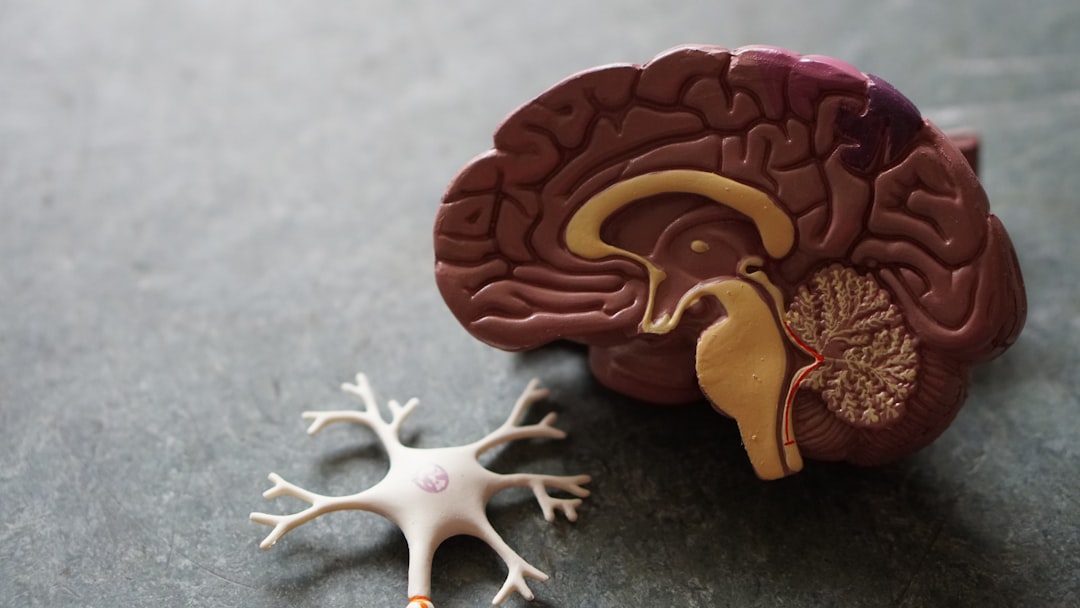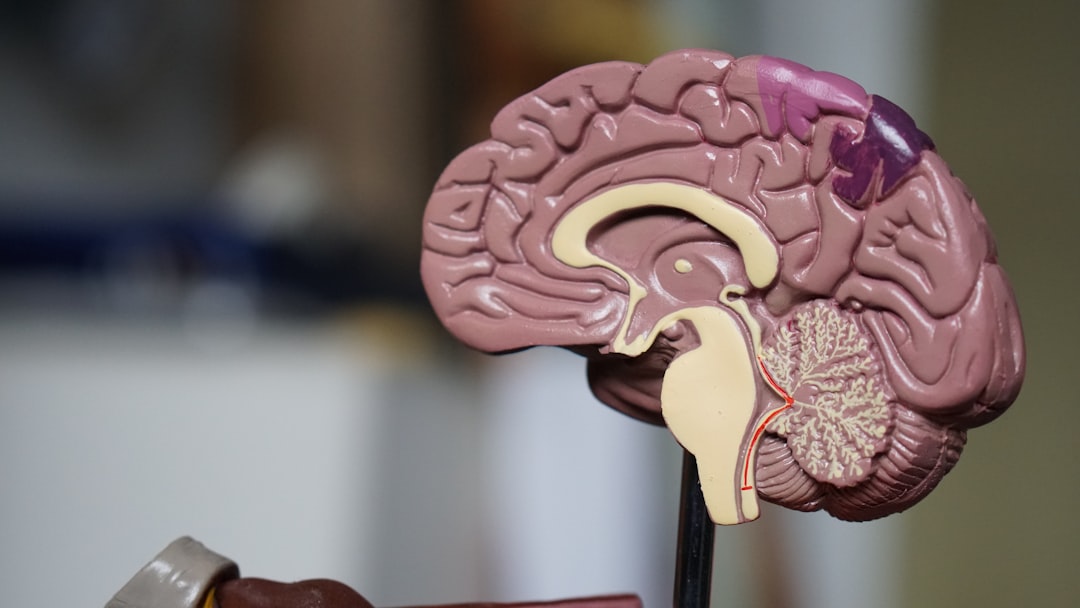Uncovering the Hidden Link: How HSV Virus May Elevate Alzheimers Disease Risk
HSV Virus Associated with Alzheimer’s Disease Risk
 Understanding the Connection Between HSV and Alzheimer’s Disease Risk
Understanding the Connection Between HSV and Alzheimer’s Disease Risk
Overview of Herpes Simplex Virus (HSV)
Herpes Simplex Virus, particularly HSV-1, is known primarily for causing oral herpes, while HSV-2 is linked to increased risk of dementia. By the age of 50, up to 90% of adults have been exposed to HSV-1. This virus often leads to recurrent cold sores for about 50% of those infected. The virus can remain dormant within the body and reactivate due to stress or illness, potentially impacting neurological health over time, especially in the context of viral infection. This dormant nature contributes to its long-term effects on health, including possible connections to neurodegenerative diseases like Alzheimer’s.
Alzheimer’s Disease Overview
Alzheimer’s disease is a devastating progressive neurodegenerative disorder that manifests as memory loss and cognitive decline. It affects over 6 million Americans, making it a significant public health concern. As the sixth leading cause of death in the United States, Alzheimer’s-related fatalities have surged by 145% from 2000 to 2019. Economically, the impact is enormous, with costs exceeding $305 billion annually in the U.S. [6]. Understanding the causes of Alzheimer’s, including the potential role of viral infections like HSV, is crucial in addressing this growing epidemic.
 The Link Between HSV-1 and Alzheimer’s Disease
The Link Between HSV-1 and Alzheimer’s Disease
 Recent Study Findings
Recent Study Findings
Recent studies have highlighted a significant connection between HSV-1 infections and Alzheimer’s disease. Individuals with HSV-1 or HSV-2 infections are found to have up to 2.44 times higher odds of developing dementia compared to those without the infections. Analysis of 80 million health records revealed that patients using antiviral medications had lower Alzheimer’s diagnoses, suggesting a protective factor. A study involving nearly 700,000 older adults also found a higher prevalence of HSV-1 among those diagnosed with Alzheimer’s. The research indicates that neuroinflammation triggered by HSV-1 may initiate and progress Alzheimer’s pathology.
 Biological Mechanisms
Biological Mechanisms
The biological mechanisms linking HSV-1 to Alzheimer’s disease are complex. HSV-1 infection triggers neuroinflammation and the accumulation of Tau proteins, both contributing to Alzheimer’s pathology. The virus can activate transposable elements (TEs) disrupting genetic processes and leading to Alzheimer’s symptoms. Moreover, the NLRP3 inflammasome is activated following HSV-1 infection, resulting in increased Aβ deposition and neuroinflammation. In animal studies, HSV-1 infection significantly exacerbates Aβ plaque deposition in transgenic Alzheimer’s disease models, highlighting its role in cognitive decline.
Role of Genetics in HSV-1 and Alzheimer’s Risk
Influence of APOE-ε4 Allele
Genetics play a crucial role in the relationship between HSV-1 and Alzheimer’s risk. The APOE-ε4 allele is a well-known genetic factor that increases the risk of Alzheimer’s, and HSV-1 is more likely to cause Alzheimer’s in individuals carrying this allele. Interestingly, infected APOE-ε4 carriers show a surprising trend of lower cortical amyloid load, suggesting complex interactions between genetic factors and viral infections. Genetic predisposition can influence the severity of symptoms in HSV-1 infected individuals, potentially making them more susceptible to cognitive decline. The interaction between HSV-1 and APOE-ε4 may alter immune responses, exacerbating neurodegeneration.
Genetic Pathways
HSV-1 infection activates LINE-1 elements linked to neurodegeneration, adding another layer to its impact on Alzheimer’s disease. Research using human-induced pluripotent stem cells (hiPSC) demonstrates that HSV1 can mimic Alzheimer’s pathology. Genetic variations can modulate immune responses to HSV-1, affecting Alzheimer’s disease risk. Understanding these genetic pathways is essential for developing targeted therapies for those at higher risk due to HSV-1 exposure.
Implications for Prevention and Treatment
Antiviral Treatments
Antiviral treatments offer promising strategies for mitigating Alzheimer’s risk associated with HSV-1. Antiviral therapy has been linked to a 17% reduced risk of Alzheimer’s disease. Medications like valacyclovir and acyclovir may reduce cognitive decline risk in older adults. Early antiviral treatment could prevent the progression of cognitive impairment in HSV-positive individuals. Combining antiviral medications with other therapeutic approaches may yield better outcomes in Alzheimer’s prevention.
Vaccination and Immune Response
Vaccination strategies, such as the BCG vaccine, may lower the risk of Alzheimer’s by reducing HSV-1 reactivation. The protective effects of vaccines likely stem from enhanced immune responses that mitigate HSV1’s impact. Ongoing research is exploring the potential of vaccines targeting HSV-1 as a preventive measure against Alzheimer’s disease. Increased immunity from vaccination could play a critical role in reducing the incidence of neurodegenerative diseases linked to viral infections.
HSV-1 and Cognitive Decline in Older Adults
Age-Related Risk Factors
The neurodegenerative effects of HSV-1 become more significant with age and cumulative exposure. Cognitive impairments are observed in Alzheimer’s model mice post-HSV-1 infection, with increased Aβ plaque deposition. Older adults with a history of HSV-1 infection experience more rapid cognitive decline compared to uninfected peers. Chronic HSV-1 infection may contribute to age-related inflammation, further exacerbating cognitive decline.
 Potential for Early Screening
Potential for Early Screening
Researchers advocate for early screening of HSV-positive individuals to potentially delay or prevent dementia. Screening could open new avenues for prevention and treatment strategies, allowing timely intervention. Health professionals may consider incorporating HSV screening into routine check-ups for at-risk populations. Early intervention could significantly reduce the burden of Alzheimer’s disease on individuals and healthcare systems.
Ongoing Research and Future Directions
Current Research Initiatives
Current research initiatives are exploring the biological mechanisms linking viral infections to dementia risk. Clinical trials are ongoing for antiviral treatments that show promise in improving cognitive function. Researchers are also investigating the long-term effects of HSV-1 infection on brain health and cognitive outcomes. Additionally, studies are looking into the roles of other herpesviruses, such as HHV6 and VZV, in Alzheimer’s disease.
 The Role of Inflammation
The Role of Inflammation
Inflammation and immune response in the brain related to HSV infection are key research focuses. Inhibition of NLRP3 inflammasome signaling reduces Aβ plaque deposition and ameliorates cognitive deficits. Chronic inflammation linked to HSV-1 reactivation may create a conducive environment for neurodegeneration. Understanding these inflammatory pathways could lead to novel anti-inflammatory strategies in Alzheimer’s treatment.
Public Health Implications
Awareness and Education
Increasing public awareness about the HSV-Alzheimer’s connection can drive early intervention efforts. Education on the potential benefits of antiviral treatments and vaccinations is crucial for prevention. Public health campaigns could focus on the importance of recognizing HSV symptoms and seeking timely treatment. Healthcare professionals should provide clear information on the relationship between viral infections and cognitive health.
 Policy and Healthcare Strategies
Policy and Healthcare Strategies
Policymakers should consider integrating HSV screening in routine health check-ups for at-risk populations. Healthcare providers can contribute by offering comprehensive care and guidance on preventive measures. Collaborative efforts between researchers and healthcare professionals can enhance understanding and management of HSV-related risks. Developing guidelines for HSV screening and treatment may help mitigate the risk of Alzheimer’s disease on a larger scale.
 Summary of Key Insights and Action Steps
Summary of Key Insights and Action Steps
Recap of Findings
Understanding the link between HSV-1 and Alzheimer’s could revolutionize prevention and treatment approaches. Antiviral treatments and early screening present promising strategies to reduce Alzheimer’s risk.
Explore Further
For those seeking more information on managing health risks, visit El Paso Emergency Room for state-of-the-art care. Visit their website for more details on 24/7 emergency services and patient empowerment initiatives.


